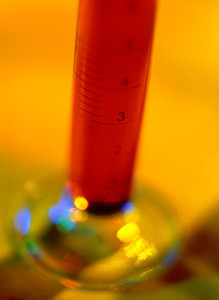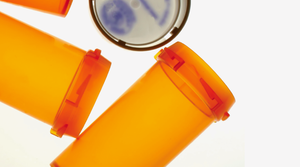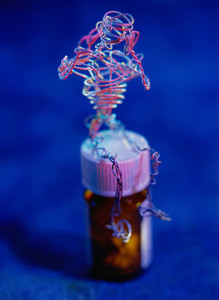If you are reading this news online, you are surely aware that many sites claim to sell “generic medicines” “without prescription” over the internet. Police and authorities have noticed as well, but do not know how best to tackle these lucrative scams.
Slow response to internet sales of fake pharmaceuticals
Generics/General
|
Posted 08/11/2010
 0
Post your comment
0
Post your comment

For example, the EMA warned in 2009 that criminal gangs were cashing in on the swine flu pandemic by pedalling fake vaccines and antiviral medicines. At the height of the pandemic, there were more adverts for fake vaccines than for fake Viagra, earning it the nickname ‘Spamiflu’.
Individual countries started to react a few years ago. The UK and US both now have authorised logos to identify those firms that do operate legal internet sales within their borders. Sweden recently introduced a two-dimensional (2D) barcode system, which is backed by Europe's pharmaceutical industry, which allows retail pharmacists to verify the product is authentic and check whether a medicine has been previously dispensed. While this will no doubt help prevent counterfeit drugs from entering the supply chain this measure still does nothing about internet sales.
The EU is framing legislation against the sale of fake online medicines as part of a regulatory overhaul of the pharmaceutical sector. Last year, the European Commission published its 'pharma package', which included a proposal for a new directive on counterfeit medicines. Members of European Parliament amended it in April 2010 to strengthen rules governing the pharmaceutical supply chain. However, it may take years for this legislation to make its way through the European system and be implemented throughout all the member states.
Further international action
In September 2010 a large-scale operation against the distribution of fake medicines in Russia was reported with the participation of Interpol for the first time. The international police will also target criminal rings profiting from sports gambling.
The Chief of Interpol’s national central bureau at the Russian Interior Ministry, Mr Timur Lahonin, said that the unit uncovered 1,200 websites selling fake medicines. The operation is taking place in 25 countries. The most dangerous segment on the black market is the fake antibiotics, contraceptives, steroids and slimming pills.
After much criticism for its inaction, Google is suing online pharmacies peddling fake drugs. The actions only concern the sponsored links generated when an Internet user enters a relevant search term. It does not concern 'organic' search results—the main body of results generated over which search engine operators have little control.
Google, Bing and Yahoo also decided earlier this year to only accept advertising from online pharmacies that have the official national accreditation mentioned above.
Chinese search engine provider Baidu has become the latest to be accused of allowing illegal pharmacies to advertise, criticised recently by China’s state TV.
Related articles
EGA welcomes MEPs decisions on falsified medicines and pharmacovigilance reports
References
Europa Press Release. Pharmaceutical package: Safe, innovative and accessible medicines: a renewed vision for the pharmaceutical sector. 10 December 2008
EurActiv. Criminals cashing in on fake swine flu medicines. 27 October 2009
EurActiv. Parliament takes aim at illegal online pharmacies.28 April 2010
Focus News Agency. Interpol conducts operation against fake medicines on Russian market. 27 September 2010
Research
Japan’s drug shortage crisis: challenges and policy solutions
Saudi FDA drug approvals and GMP inspections: trend analysis
EMA launches European shortages monitoring platform to tackle persistent medicine shortages

Generics/General Posted 03/12/2024
FDA releases one-year progress report for the Generic Drug Cluster

Generics/General Posted 28/10/2022
The best selling biotechnology drugs of 2008: the next biosimilars targets








Post your comment